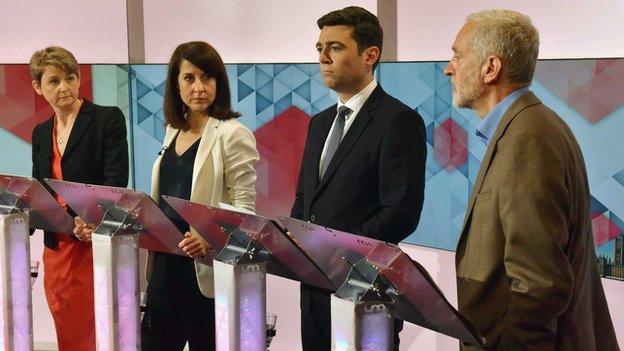Yvette Cooper: Jeremy Corbyn's economic policies 'not credible'
- Published
Yvette Cooper: Jeremy Corbyn is offering "old solutions to old problems, not new answers to the problems of today"
Yvette Cooper has turned her fire on the frontrunner in the Labour leadership race as the party prepares to start sending out ballot papers.
She said her left-wing rival Jeremy Corbyn lacked economic credibility and he would keep Labour out of power.
Mr Corbyn insisted his policies were "serious" and urged his rivals not to indulge in "personal abuse".
Meanwhile, the Guardian has endorsed Ms Cooper for the leadership, saying she is "best-placed" to unite the party., external
'Wrong answers'
Ms Cooper has previously held back from directly criticising Mr Corbyn, who began the race as a rank outsider but has shot to the top of the opinion polls on the back of a social media campaign and backing from the two biggest unions.
But in a speech in Manchester, she accused the Islington North MP of "bad economics," arguing his policies - including on renationalisation, quitting Nato and quantitative easing - were not radical, would not stand up to scrutiny, and would not get Labour elected.
Her comments echo warnings from former Prime Minister Tony Blair and other senior figures as a row continues over the party's future direction.
Jeremy Corbyn: "It's Labour's ability to stand up to this Tory agenda that is most important."
She said she did not want to dismiss the values and intentions of Mr Corbyn or his supporters, but she said she would not "pander" to them or pretend she agreed with his answers for Britain.
"I feel really strongly... that his are the wrong answers for the future," she added.
"They aren't radical and they aren't credible. And they won't change the world. They will keep us out of power."

Analysis by Political Correspondent Ross Hawkins
Criticise Corbyn and you make him stronger. That's been the fear of so many who believe he'd spell disaster for Labour.
When Tony Blair - arch-enemy of the party's left - says a Corbyn victory could mean annihilation, they wince.
If you love Corbyn and hate Blair, they argue, that won't change your mind. It's why, perhaps, Yvette Cooper has waited until the eve of polling to explicitly criticise his policies. It's why others stay silent still.
Labour's centrists fear too that the flood of new voters - hundreds of thousands of them, enough to form a party of their own - have signed up to back Corbyn.
They don't know it, though. Not yet.
The same Westminster consensus that makes Corbyn a sure-fire winner today, regarded him as a fringe outsider not so long ago; it's been a bad year for the Westminster consensus.
So time's not up yet for those who'd make the case against Corbyn, but it's running out.
And his opponents remain uncertain who or what could stand in his way.

Ms Cooper told BBC Newsnight there was a serious risk that the party would split if Mr Corbyn won.
She said: "I don't want to see that happen, I can't bear to see that happen because I think there is too much at stake and when you've got families who depend on Labour to stop their tax credits being cut, to say goodbye to power and to the possibility of winning the next election is wrong."
Asked if she would sit in a Jeremy Corbyn shadow cabinet, Ms Cooper said she would not be able to argue for policies such as the return of the Labour Party's Clause IV.
She said she feared Labour could be out of power for a generation, but would not walk away from the party.
'No personal attacks'
In an editorial, the Guardian said Mr Corbyn had "breathed extraordinary life" into the leadership campaign, while his three rivals came across as "a triple-headed embodiment of the well-dressed, smooth-talking Westminster class".
But it said he would not win the votes necessary to clinch a general election - and instead Ms Cooper would be best-placed to take on David Cameron, and perform the "formidably difficult task" of uniting the party.
Andy Burnham, another candidate vying for the leadership, said the attacks on Mr Corbyn "misread the mood of the party".
He said there was "a yearning out there for a different style of politics".
Andy Burnham accepted that Jeremy Corbyn did offer "real change", but said his approach was better
Responding to Ms Cooper's criticisms and Mr Blair's claim that he would "annihilate" the party, Mr Corbyn said he wanted to focus on policies not personal abuse.
"We don't do personal attacks," he said.

Labour leadership contest in-depth
A look at what each of the candidates would do if they won power:

He said many people had been "turned off" by the "politics of abuse" and wanted the political system to represent them.
The Islington North MP added he had put forward a "serious set of economic proposals" which he said had been well thought out.
Ms Kendall, who is polling fourth in the contest, said she understood why Labour figures were issuing warnings over the prospects for Labour under Mr Corbyn's leadership.
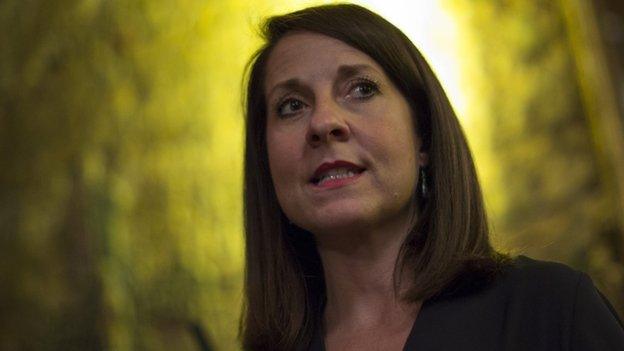
But she added: "I think it is up to all of the candidates in the leadership and deputy leadership race to make the case for a positive, optimistic alternative for the Labour Party that is right for the country."
The leadership hopeful, who is embarking on a three-day tour of Britain to revive her bid, conceded she had a "hell of a long way to go" but she would fight "to the very end".
Meanwhile, Labour Party officials have rejected calls to pause the contest over fears the process is being sabotaged by members of other parties.
The Labour Party will begin sending out ballot papers on Friday, with the result of the four-way contest to be declared on 12 September.
- Published13 August 2015
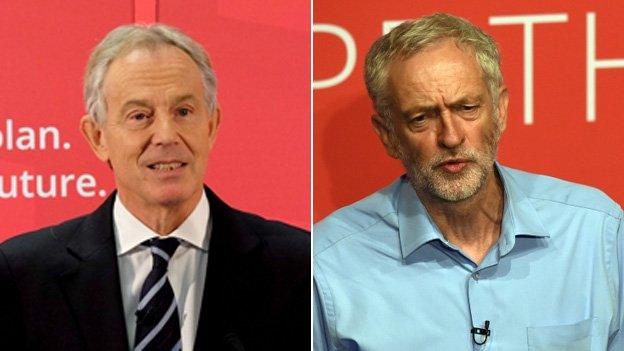
- Published13 August 2015
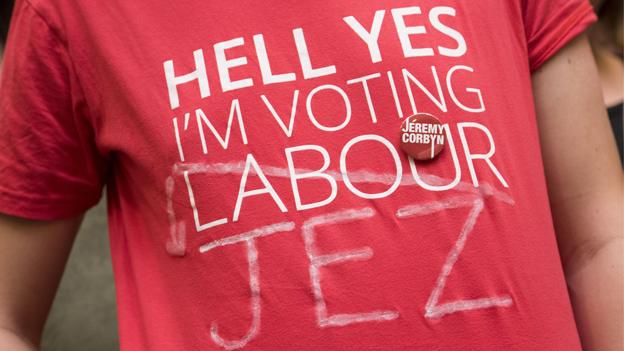
- Published12 August 2015
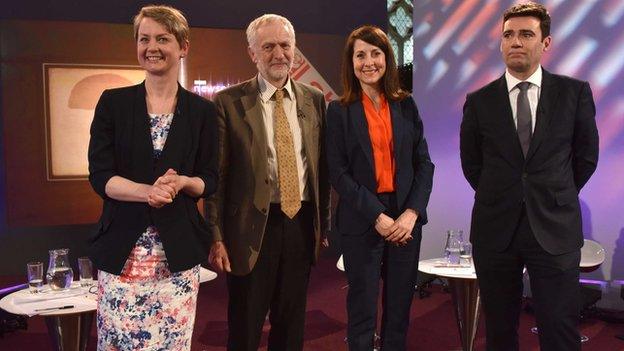
- Published20 June 2015
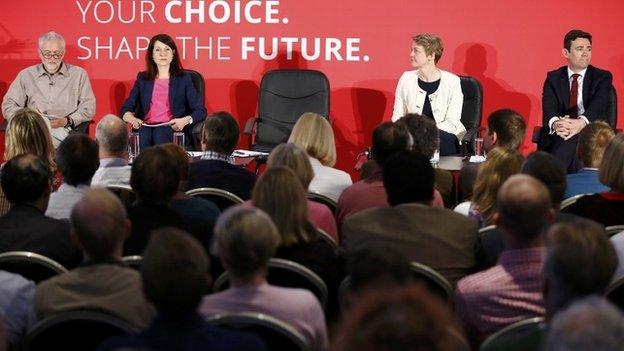
- Published12 August 2015
- Published11 August 2015
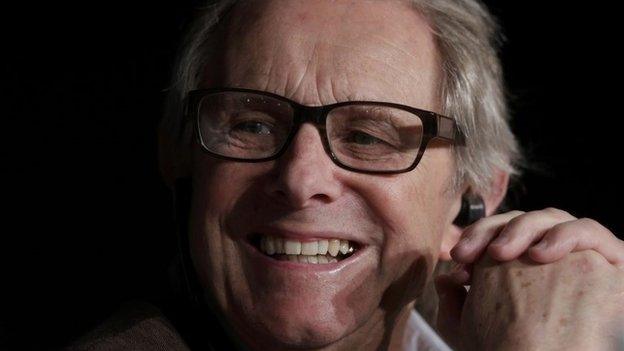
- Published11 August 2015
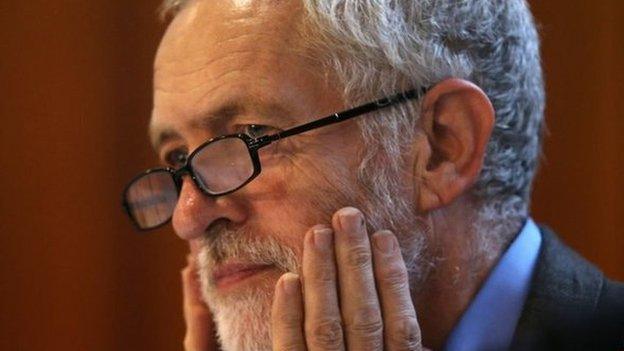
- Published10 August 2015
